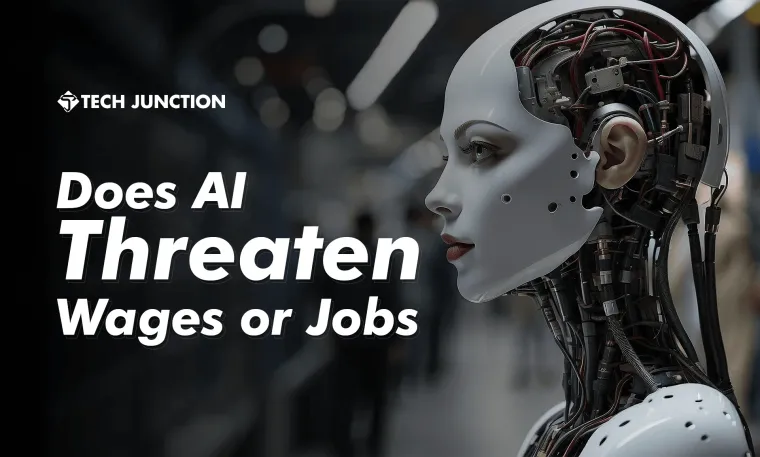Tech
 Saba MohsinDecember 5, 20232 Mins read214 Views
Saba MohsinDecember 5, 20232 Mins read214 Views
The AI Conundrum: Does Artificial Intelligence Threaten Wages or Jobs?
Explore the fears and opportunities as we examine whether the AI Conundrum threatens wages or even jobs.

Written by
Saba Mohsin
Saba is the Digital Marketing Manager at OneStream Live, a robust multistreaming service. With a knack for storytelling & a passion for innovation, she's on a mission to disrupt the digital landscape.
-Sponsored-


Related Articles
Tech  Meer KaleemFebruary 2, 2026
Meer KaleemFebruary 2, 2026
How to Upload Blog on WordPress
Learn how to upload blog on WordPress with our step-by-step guide. From...
Tech  KalimUllahJanuary 2, 2026
KalimUllahJanuary 2, 2026
How to Improve WiFi Signal and Speed
Frustrated by weak WiFi? Learn how to improve WiFi signal and speed...
Tech  Misha ImranDecember 23, 2025
Misha ImranDecember 23, 2025
What Is Cloud Infrastructure and How It Works
Cloud infrastructure is the foundation of modern IT, encompassing the networks of...
GamingTech  Meer KaleemDecember 10, 2025
Meer KaleemDecember 10, 2025
Sony PS5 Pro vs PS5 Slim: Graphics & Performance
In the ninth generation, we saw PlayStation stepping up to provide hobbyists...













